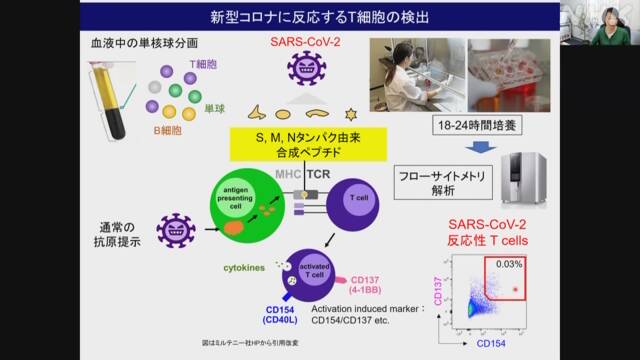A research group at the Center for iPS Cell Research and Application, Kyoto University investigated the immune system of the elderly and young people against the new coronavirus, and found that the elderly have fewer specific immune cells that attack infected cells, which makes them more severe. It turns out that it may be affecting.
A research group led by Professor Yoko Hamasaki of the Center for iPS Cell Research and Application, Kyoto University collected blood from 30 young people in their early 20s and 26 elderly people in their early 70s, and how immune cells react to the new coronavirus. I compared whether it works for.
As a result, some of the immune cells called "killer T cells" that attack infected cells and suppress the growth of coronavirus are about 90% less in the elderly than in the young, which may affect the severity of the disease. I found out that there is sex.
In addition, even young people who are infected with a virus called "cytomegalovirus" that is latent in many people have a small number of immune cells, as in the elderly, and the symptoms vary from person to person. It means that it may be affecting.
Professor Hamasaki says, "I would like to further research and lead to effective vaccines and treatments that can activate immunity even in elderly people with decreased killer T cells."
The research group has published this result in the international academic journal "Frontiers in Aging".

